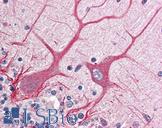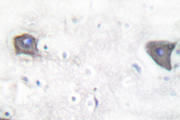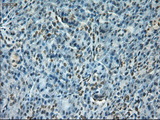Login
Registration enables users to use special features of this website, such as past
order histories, retained contact details for faster checkout, review submissions, and special promotions.
order histories, retained contact details for faster checkout, review submissions, and special promotions.
Forgot password?
Registration enables users to use special features of this website, such as past
order histories, retained contact details for faster checkout, review submissions, and special promotions.
order histories, retained contact details for faster checkout, review submissions, and special promotions.
Quick Order
Products
Antibodies
ELISA and Assay Kits
Research Areas
Infectious Disease
Resources
Purchasing
Reference Material
Contact Us
Location
Corporate Headquarters
Vector Laboratories, Inc.
6737 Mowry Ave
Newark, CA 94560
United States
Telephone Numbers
Customer Service: (800) 227-6666 / (650) 697-3600
Contact Us
Additional Contact Details
Login
Registration enables users to use special features of this website, such as past
order histories, retained contact details for faster checkout, review submissions, and special promotions.
order histories, retained contact details for faster checkout, review submissions, and special promotions.
Forgot password?
Registration enables users to use special features of this website, such as past
order histories, retained contact details for faster checkout, review submissions, and special promotions.
order histories, retained contact details for faster checkout, review submissions, and special promotions.
Quick Order
| Catalog Number | Size | Price |
|---|---|---|
| LS-C188303-0.1 | 0.1 mg (0.1 mg/ml) | $343 |
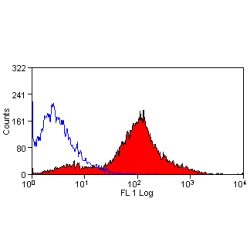
Monoclonal Mouse anti‑Mouse NOTCH1 Antibody (clone mN1A, FITC, IHC) LS‑C188303
Monoclonal Mouse anti‑Mouse NOTCH1 Antibody (clone mN1A, FITC, IHC) LS‑C188303
Antibody:
NOTCH1 Mouse anti-Mouse Monoclonal (FITC) (mN1A) Antibody
Application:
IHC, IHC-Fr, Flo
Reactivity:
Mouse
Format:
FITC, Unmodified
Other formats:
Toll Free North America
 (800) 227-6666
(800) 227-6666
For Research Use Only
Overview
Antibody:
NOTCH1 Mouse anti-Mouse Monoclonal (FITC) (mN1A) Antibody
Application:
IHC, IHC-Fr, Flo
Reactivity:
Mouse
Format:
FITC, Unmodified
Other formats:
Specifications
Description
NOTCH1 antibody LS-C188303 is an FITC-conjugated mouse monoclonal antibody to mouse NOTCH1. Validated for Flow and IHC.
Host
Mouse
Reactivity
Mouse
(tested or 100% immunogen sequence identity)
Clonality
IgG1
Monoclonal
Clone
mN1A
Conjugations
FITC.
Also available Unconjugated or conjugated with RPE.
Purification
Protein G purified
Modifications
Unmodified
Immunogen
Synthetic peptide corresponding to cdc10-NCR region within mouse Notch1
Specificity
Recognizes Notch 1, one of the four major transmembrane receptors (Notch 1-4) of the Notch signalling pathway, which is activated through binding to DSL domain-containing membrane-bound specific ligands. The Notch signalling pathway is an evolutionarily conserved pathway in multi-cellular organisms, which is vital for cell-cell communication, important during fundamental developmental and physiological processes, including regulation of cell fate decisions during neuronal, cardiac and endocrine development, stem cell haematopoiesis, thymic T-cell development, and both tumor progression and suppression. Ligation of Notch receptors by their specific ligands, Jagged1 (CD339), Jagged2, Delta like-1 (DLL1), DLL3 and DLL4, on physically adjacent signal receiving cells, induces proteolysis of the receptors by ADAM-family metalloproteases and gamma-secretase complex, within the transmembrane domain, releasing the Notch intracellular domain (NICD) to translocate to the nucleus. Subsequent signal transduction then occurs through either the CSL-NICD-Mastermind complex cascade (canonical pathway), or NF-kappaB-NICD and CSL-NICD-Deltex complex signalling cascades (non-canonical pathway). The canonical pathway inhibits the differentiation of stem cells or progenitor cells, whilst the non-canonical pathway promotes differentiation. Notch 1 is expressed in a range of cells including hematopoietic cells in mouse fetal liver, adult thymus and bone marrow. Notch 1 signalling plays a role in follicular differentiation, tissue homeostasis, and in both CD4+ and CD8+ cell maturation in the thymus. Studies have also implicated Notch 1 in the regulation of lymphopoiesis, myelopoiesis, and neurogenesis.
Applications
- IHC
- IHC - Frozen
- Flow Cytometry (1:1 - 1:10)
- Applications tested for the base form of this product only
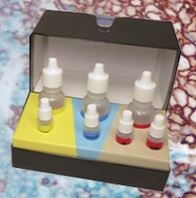
|
Performing IHC? See our complete line of Immunohistochemistry Reagents including antigen retrieval solutions, blocking agents
ABC Detection Kits and polymers, biotinylated secondary antibodies, substrates and more.
|
Usage
The applications listed have been tested for the unconjugated form of this product. Other forms have not been tested.
Presentation
PBS, 0.09% Sodium Azide, 1% BSA
Storage
Store at 4°C or at -20°C. Store undiluted. Avoid freeze-thaw cycles. Microcentrifugation recommended if solution contains precipitate.
Restrictions
For research use only. Intended for use by laboratory professionals.
About NOTCH1
Publications (0)
Customer Reviews (0)
Featured Products
Species:
Human
Applications:
IHC, IHC - Paraffin, Western blot, ELISA
Species:
Human, Mouse, Rat
Applications:
IHC, IHC - Paraffin, Western blot
Species:
Human
Applications:
IHC, IHC - Paraffin, Immunofluorescence, Western blot
Request SDS/MSDS
To request an SDS/MSDS form for this product, please contact our Technical Support department at:
Technical.Support@LSBio.com
Requested From: United States
Date Requested: 3/15/2025
Date Requested: 3/15/2025

